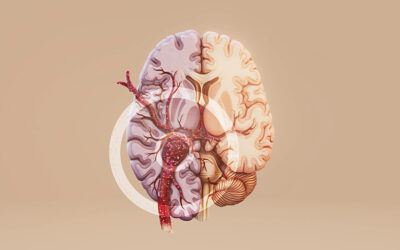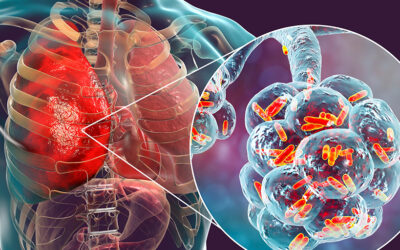Knee Pain in Young Adults: Causes, Symptoms, and Treatment Options

While knee pain commonly occurs in older adults, it has become increasingly common among young adults as well. From sudden sports injuries to lifestyle factors such as poor posture, prolonged sitting, and lack of exercise; several reasons can contribute to discomfort in the knee joint. Recognising the underlying cause is crucial because untreated knee pain may lead to long-term complications and affect day-to-day activities. In this article, we will explore the common causes of knee pain in young adults, the risk factors, and the treatment and therapy options that can help maintain healthy, active knees for years to come.
Table of Contents
ToggleCauses of Knee Pain
Knee pain can occur at any age, but the underlying causes vary depending on lifestyle, hormonal factors, and physical activity levels. Understanding these differences helps identify specific triggers and ensures appropriate treatment for lasting relief.
Causes of Knee Pain in Young Adults
Young adults often experience knee pain due to overuse, poor posture, or high-impact activities. Common causes include:
- Sports or Exercise Injuries: Sudden twists, falls, or repetitive jumping can lead to ligament sprains or meniscal tears.
- Patellofemoral Pain Syndrome: Pain around the kneecap caused by muscle imbalance or misalignment, often seen in runners and gym-goers.
- Overuse and Strain: Continuous running, cycling, or squats without adequate rest weakens the tendons and cartilage.
- Sedentary Lifestyle: Prolonged sitting and lack of movement cause stiffness and poor joint lubrication.
- Improper Footwear or Posture: Wearing unsupportive shoes or standing incorrectly increases stress on the knees.
These issues, if left unchecked, can progress to chronic discomfort and early joint wear.
Causes of Knee Pain in Ladies
Women are more likely to develop knee pain due to hormonal, anatomical, and lifestyle factors such as:
- Hormonal Changes: Fluctuating oestrogen levels may affect joint flexibility and ligament strength.
- Footwear Choices: High heels or poorly fitted shoes alter leg alignment and strain the knees.
- Pregnancy-Related Stress: Added body weight and shifting posture during pregnancy can overload the knee joints.
- Osteoarthritis Risk: Women, especially post-menopause, are more prone to degenerative knee conditions.
Addressing these factors through physiotherapy, correct footwear, and weight management helps maintain joint strength and stability.
Causes of Knee Pain in Older Adults
In older age, knee pain usually results from gradual wear and tear or degenerative conditions, such as:
- Osteoarthritis: The most common cause, leading to joint stiffness and pain due to cartilage breakdown.
- Reduced Muscle Strength: Weak muscles around the knee fail to support the joint adequately.
- Bone Density Loss: Age-related osteoporosis increases the risk of minor fractures and discomfort.
- Old Injuries: Previous ligament or meniscus injuries may cause recurring pain with ageing.
Maintaining muscle strength and mobility through regular exercise and physiotherapy can reduce pain and improve joint function.
Common Risk Factors and High-Risk Activities
Certain habits, movements, and lifestyle patterns increase the likelihood of developing knee pain, particularly among young adults. Recognising these risk factors early can help prevent strain and long-term injury.
High-risk activities and behaviours that can lead to knee pain include:
- High-impact sports: Activities such as football, basketball, and running on hard surfaces can cause repetitive stress on the knees.
- Improper exercise technique: Incorrect squats, lunges, or heavy lifting without guidance often strain knee ligaments.
- Sudden increase in activity levels: Rapidly intensifying workouts without conditioning leads to overuse injuries.
- Prolonged sitting or standing: Sedentary routines or long desk hours reduce joint flexibility and muscle strength.
- Wearing unsupportive footwear: Flat shoes, worn-out soles, or high heels alter posture and affect knee alignment.
- Being overweight or obese: Extra body weight puts additional pressure on knee joints during movement.
- Previous injuries: Unhealed sprains or untreated ligament tears make the knees more vulnerable to future pain.
Adopting safe exercise habits, maintaining an active lifestyle, and using proper footwear can significantly reduce the risk of knee pain and injury.
Signs and Symptoms of Knee Pain
Knee pain may develop gradually or appear suddenly after an injury. Recognising early warning signs allows for timely diagnosis and prevents further joint damage. The symptoms may vary depending on the cause and severity but often include the following:
- Aching or Sharp Pain: Discomfort when bending, climbing stairs, or standing for long periods.
- Swelling or Inflammation: Visible puffiness or warmth around the knee joint due to internal irritation.
- Stiffness or Restricted Movement: Difficulty in straightening or bending the knee fully, especially after rest.
- Grinding or Clicking Sensations: A feeling of friction or popping when moving the knee.
- Instability or Weakness: The knee may feel as if it might give way during walking or physical activity.
- Pain After Activity: Soreness following exercise, long walks, or even extended sitting.
If these symptoms persist beyond a few days or worsen with daily activities, medical evaluation and guided therapy become essential to prevent chronic damage.
Main Reasons for Persistent or Chronic Knee Pain
When knee pain continues for weeks or keeps returning, it may point to an underlying condition or repeated stress on the joint. Here are some common reasons for persistent or chronic knee pain, understanding which can help in managing the problem effectively and preventing long-term damage:
Overuse Injuries and Repetitive Strain
Repetitive movements from sports, exercise, or physical work can irritate muscles and tendons around the knee. Continuous running, cycling, or jumping without rest often leads to tendonitis or cartilage wear, causing persistent pain even during simple activities such as walking or climbing stairs.
Lifestyle Factors
Unhealthy habits often make knee pain worse. Sedentary routines weaken muscles that support the knee, while excess weight puts extra pressure on the joint. Poor posture while sitting or standing and lack of regular stretching also increase strain, leading to stiffness and discomfort.
Poor Biomechanics and Muscle Imbalance
Incorrect alignment of the legs or weakness in supporting muscles changes how body weight is distributed across the knees. This imbalance can cause uneven wear on the cartilage, resulting in chronic pain or early joint degeneration.
Medical Conditions
Certain medical issues can make knee pain long-lasting. Arthritis, gout, or autoimmune conditions such as rheumatoid arthritis cause inflammation that damages joint tissues. Infections or cysts may also contribute to recurring discomfort if left untreated.
Diagnosis and Evaluation of Knee Pain
Accurate diagnosis is essential to identify the exact cause of knee pain and plan the most suitable treatment. Orthopaedic specialists evaluate several factors, including pain pattern, medical history, and physical activity levels, before recommending further tests.
The diagnostic process usually involves:
- Clinical Examination: Doctors assess swelling, tenderness, and range of motion through physical inspection and movement tests.
- Imaging Tests: X-rays detect bone injuries or arthritis, while MRI and CT scans reveal ligament, tendon, or cartilage damage.
- Blood Tests: These help rule out infections, inflammation, or autoimmune conditions such as rheumatoid arthritis.
- Gait and Posture Assessment: Analysing how a person walks or stands helps identify biomechanical imbalances that strain the knee.
Early diagnosis not only confirms the root cause but also prevents further wear and tear, allowing faster recovery and long-term joint protection.
Therapy and Treatment Options for Knee Pain
Treatment for knee pain depends on its underlying cause, severity, and duration. Most young adults recover well with non-surgical methods that focus on relieving pain, restoring mobility, and preventing recurrence. Treatment options for knee pain include:
Medical Treatment for Knee Pain
Doctors may recommend anti-inflammatory medicines, short rest periods, and supportive braces to reduce pain and swelling. For some cases, cold or heat therapy and mild pain-relief ointments may be prescribed. Once initial inflammation subsides, patients are guided to begin physiotherapy for recovery and long-term strength building.
Physiotherapy for Knee Pain
Physiotherapy plays a central role in restoring normal function. Personalised rehabilitation programmes include stretching, muscle strengthening, and balance training to improve flexibility and stability. Therapists may also use advanced techniques such as laser therapy, ultrasound therapy, or manual mobilisation to relieve stiffness and promote faster recovery.
Minimally Invasive and Surgical Options
When conservative treatments fail or if structural damage is severe, minimally invasive procedures such as arthroscopy may be recommended. These surgeries allow doctors to repair torn ligaments or remove damaged cartilage using small incisions, ensuring faster healing and less postoperative discomfort.
Home Remedies and Lifestyle Support
For many young adults, mild knee pain can be managed effectively with simple home remedies, dietary adjustments, and regular exercise. These approaches support healing, reduce strain, and strengthen the joints over time.
Home Remedies for Knee Pain
Practical self-care methods can help ease discomfort and promote faster recovery:
- Apply Ice Packs: Reduces inflammation and swelling after physical activity or minor injury.
- Use Heat Therapy: Helps relax stiff muscles and improve blood circulation.
- Rest and Elevate: Allows healing by reducing pressure on the knee joint.
- Gentle Massage: Encourages joint lubrication and relieves tension in surrounding muscles.
- Compression Bandage: Provides support and prevents excessive joint movement.
Following these measures regularly can reduce dependency on painkillers and speed up recovery.
Diet for Knee Pain
A balanced, nutrient-rich diet helps protect cartilage and reduce inflammation. Foods beneficial for knee health include:
- Calcium and Vitamin D sources: Milk, curd, sesame seeds, and leafy greens strengthen bones.
- Omega-3 fatty acids: Found in flaxseeds, walnuts, and fish, help reduce joint inflammation.
- Turmeric and Ginger: Known for their natural anti-inflammatory properties.
- Fibre-rich foods: Whole grains, pulses, and fresh vegetables support overall joint health.
Maintaining hydration and avoiding processed or high-sodium foods further supports healthy joints.
Exercises for Knee Strengthening
Gentle, low-impact exercises can improve joint stability and mobility. Exercises for knee strengthening include:
- Quadriceps strengthening Exercises: Straight leg raises and wall sits build thigh support.
- Cycling or Swimming: Improves endurance without straining the joints.
- Yoga and Stretching: Increases flexibility and reduces stiffness.
- Balance exercises: Help stabilise the knee and prevent falls or further injury.
In addition, regular physiotherapy-guided workouts ensure correct posture and prevent overexertion.
Prevention Tips to Avoid Knee Pain
Maintaining joint health requires consistent care and body awareness, such as:
- Maintain a healthy body weight to reduce joint load.
- Warm up and stretch before exercise.
- Wear comfortable, supportive footwear.
- Avoid sudden jumps or high-impact workouts.
- Take breaks from prolonged sitting or standing.
Simple preventive steps can go a long way in keeping knees pain-free and active through the years.
Why Choose Graphic Era Hospital for Knee Pain Treatment?
At Graphic Era Hospital, Dehradun, patients receive comprehensive orthopaedic care designed to address the root cause of knee pain and restore long-term mobility. The hospital combines advanced diagnostic technology, evidence-based treatment methods, and expert physiotherapy for complete joint rehabilitation. Here’s why people choose Graphic Era hospital for knee pain treatment:
Experienced Orthopaedic Specialists
A team of highly skilled orthopaedic surgeons, sports injury experts, and physiotherapists create personalised treatment plans for patients of all age groups. They focus on accurate diagnosis, non-surgical recovery, and long-term joint protection.
Advanced Technology and Minimally Invasive Procedures
The hospital is equipped with modern imaging systems, arthroscopy units, and computer-assisted rehabilitation tools that ensure precision, safety, and quicker recovery.
Comprehensive Rehabilitation and Personalised Care
Patients receive guided physiotherapy, strength training, and lifestyle counselling to support healing and prevent recurrence. The care teams prioritise comfort, motivation, and continuous support throughout recovery.
Living Pain-Free: Taking Early Action Matters
Ignoring early signs of knee pain can turn minor discomfort into a chronic condition. Seeking timely care, adopting an active lifestyle, and following guided physiotherapy can prevent lasting joint damage and help maintain strength and flexibility. To consult an orthopaedic specialist for knee pain at Graphic Era Hospital, Dehradun, call 1800-889-7351 today.
Frequently Asked Questions
When should I consult a knee pain doctor near me in Dehradun?
Consult an orthopaedic specialist if knee pain lasts more than a few days, limits daily activity, or is accompanied by swelling, instability, or difficulty walking. Early evaluation ensures accurate diagnosis and faster recovery.
Can young adults develop osteoarthritis?
Yes, although osteoarthritis is more common in older adults, young people can develop early joint degeneration due to injuries, obesity, or repetitive strain from sports or workouts.
Is physiotherapy enough to treat knee pain at home?
For mild to moderate cases, physiotherapy can be highly effective. Guided exercises, posture correction, and muscle-strengthening routines help relieve pain and prevent recurrence without the need for surgery.
What foods help reduce knee inflammation naturally?
Anti-inflammatory foods such as turmeric, ginger, flaxseeds, walnuts, and green leafy vegetables can help reduce swelling and support joint health. Maintaining a diet rich in dietary fibre, calcium, and omega-3 fatty acids also aids recovery.
Which activities should be avoided if knee pain persists?
Avoid running on hard surfaces, lifting heavy weights, deep squats, or high-impact exercises until pain subsides. Choose low-impact activities such as swimming, cycling, or yoga under expert supervision.
Can knee pain be completely cured with exercise and therapy?
Yes, many young adults recover fully with consistent physiotherapy, proper rest, and lifestyle changes. However, chronic or severe cases may require medical treatment or minimally invasive procedures for lasting relief.
How can young adults prevent knee problems in later life?
Maintaining healthy body weight, exercising regularly, practising proper posture, and addressing minor injuries promptly can help protect the knees and reduce the risk of early joint wear.
By Specialities
- Bariatric Surgery
- Cancer Care
- Cardiology
- Dental
- Dermatology
- Diabetes & Endocrinology
- Endocrinology and Diabetes
- ENT (Ear Nose Throat)
- Eye Care
- Gastroenterology
- Haematology
- Health Awareness
- Health Care
- Health Tips
- Hematology
- Hepatology
- Internal Medicine
- Mental Health and Behavioural Sciences
- Metabolic
- Neonatology
- Nephrology
- Neurology
- Nutrition & Dietetics
- Obstetrics & Gynaecology
- Oncology
- Ophthalmology
- Orthopaedics
- Paediatric
- Physiotherapy & Rehabilitation
- Plastic and Reconstructive Surgery
- Psychology
- Pulmonology
- Rheumatology
- Spine
- Urology
Recent Posts
- Invest in You: How to ‘Give to Gain’ Years of Wellness this International Women’s Day
- World Hearing Day 2026: Empower Yourself to Protect and Improve Your Hearing
- Understanding Dementia: Types, Causes, Symptoms and Treatment
- A Complete Guide to Blood Clots in the Brain
- Heart Attack: Symptoms and Treatment
Need expert medical advice?
Share your details and our healthcare specialists will reach out to assist you.
By proceeding, you acknowledge and agree to our Privacy Policy, Terms of Use, and Disclaimer.




















